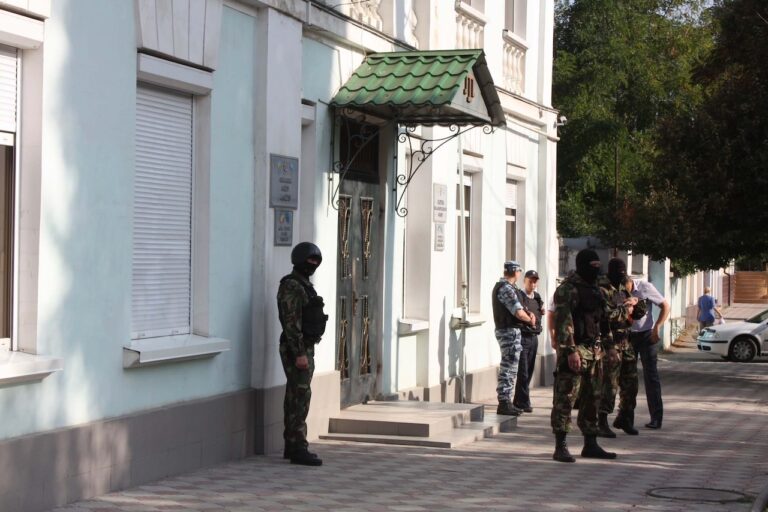Re-criminalization of libel is part of a raft of laws rammed through the Russian parliament from June through mid-July, setting out new, severe restrictions on the rights to free expression, assembly, and association.
(Human Rights Watch/IFEX) – Moscow, July 17, 2012 – The re-introduction of criminal libel to Russia’s domestic laws is a yet another serious blow to freedom of expression, Human Rights Watch said today. The European Union member states, the United States, and the Council of Europe should remind the Russian leadership that criminal penalties for libel are regressive and out of step with international human rights law and call on President Vladimir Putin not to sign the law, Human Rights Watch said.
On July 13, 2012, after a third and final reading, the State Duma, the lower chamber of Russia’s parliament, adopted a new law criminalizing certain types of libel. Only seven months earlier, legislation initiated by Dmitry Medvedev, president at the time, had ensured that libel would be treated as an administrative offense. That move brought Russia accolades from the Council of Europe for bringing the law into line with European standards.
“It’s hard to believe that just a little more than half a year ago we were wholeheartedly applauding the decriminalization of libel in Russia and congratulating the Kremlin on making this important step to protect free speech,” said Tanya Lokshina, senior Russia researcher at Human Rights Watch. “It seems that the Kremlin has devoted the first two months of Putin’s presidency to unraveling the small achievements of Medvedev’s quasi-liberalization.”
Re-criminalization of libel was part of a raft of laws rammed through the Russian parliament from June through mid-July, setting out new, severe restrictions on the rights to free expression, assembly, and association, and laying the legal groundwork to reinforce authoritarianism in Russia.
Unlike the criminal libel law eliminated under Medvedev, the new law does not provide prison terms for violations. However, it provides harsh financial penalties even in comparison with the previous legislation. Libelous public statements or remarks reproduced by media outlets will be punished by a fine of up to 2 million rubles (just over US$61,000). If an individual is libeled by being falsely accused of a grave crime, the penalty is a fine of up to 5 million rubles (just over $153,000).
“These high fines can effectively suffocate smaller Russian media outlets and seem designed to increase self-censorship in mass media and online,” Lokshina said.
The new law includes a special article “on libel against judges, jurors, prosecutors, and law enforcement officials,” punishable by a fine of up to 2 million rubles. Such a provision is incompatible with Russia’s human rights obligations, especially the need to protect freedom of expression, Human Rights Watch said. Under international human rights law, the threshold for criticism of a public official is greater than for a private individual, and this provision could restrict legitimate criticism of public officials to an extent not permitted under international standards.
Human Rights Watch called on Russia’s international partners to mobilize support for Russian civil society and use their leverage to put a halt to the Kremlin tightening the screws and destroying all the fragile accomplishments of the Medvedev presidency.
“Freedom to criticize officials and expose their alleged wrongdoing is crucially important to fostering public debate and to holding officials accountable,” Lokshina said. “The threat of criminal sanction to restrict speech strikes at the very core of Russia’s vibrant community of rights activists and independent journalists.”


